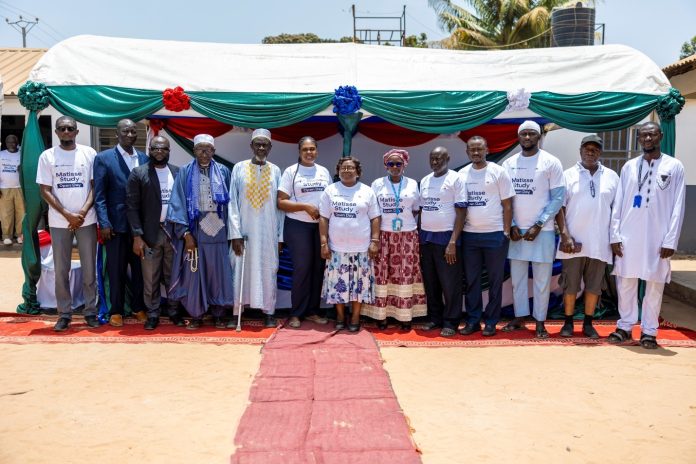The Medical Research Council Unit-The Gambia at the London School of Hygiene and Tropical Medicine (MRCG), in a press statement, said Respiratory Syncytial Virus (RSV) is a leading cause of respiratory illness in young infants, often causing breathing difficulties and leading to significant mortality in children under 6 months of age, especially in low- and middle-income countries.”
The council said on the 15th of May 2024, the Unit organised an open day in Sukuta to sensitise residents on the subject matter.
In collaboration with Sukuta Health Centre, the event brought together parents, community leaders, and local government authorities to share the findings of the phase 3 clinical trial of the Maternal Immunisation Study for Safety and Efficacy (MATISSE). Funded by Pfizer, the Maternal Respiratory Syncytial Virus (RSV) vaccine which has already been licensed by the United States Food and Drug Administration, offers a promising future for reducing mother-to-child infection of RSV.
The MATISSE study, according to the presser, focused on immunising pregnant women against RSV to reduce its severity in infants. The trial recruited women between 24 and 36 weeks of gestation. Out of the over 200 pregnant women who participated in the study, 196 were vaccinated.
Speaking at the open day, Claire Oluwalana, Clinical Trial Coordinator of the RSV Study, acknowledged the study’s significance, stating that, “vaccinating mothers in pregnancy for such vaccines like tetanus toxoid, pertussis, and recently, the RSV vaccine protects babies immediately after birth and within the early months of life, when the risk of death is highest.”
Dr Jane Maina, World Health Organisation Representative in The Gambia, emphasised the importance of the study to newborns. “Ensuring that every mother receives the best protection through scientifically backed healthcare provisions and vaccines is crucial for them and their newborns,” she said.
“MRCG’s collaboration with the Ministry of Health demonstrates that The Gambia is taking significant steps towards enhancing maternal health through innovation, a commitment to advance,” Dr Maina concluded.
The Unit works closely with the Ministry of Health and regional health facilities to strengthen vaccine effectiveness as part of efforts to improve infant health.
Addressing the gathering, Musa Camara, Regional Health Director for West Coast Region, representing the Director of Health Services at the Ministry of Health, recognised MRCG’s significant contribution to vaccine trials in The Gambia and highlighting that “MRCG has been an important partner to the Ministry of Health. He said: “We recognise that sustainable development cannot be attained without a healthy population, and our partnership with MRCG is crucial to achieving this.”
Mrs Fatou Darboe, a mother who spoke on behalf of the beneficiaries thanked stakeholders, including parents, community members, leaders, healthcare professionals, and research collaborators, acknowledging their crucial role in the successful completion of the project. The MATISSE study, conducted across 18 countries around the world, tested the efficacy of the RSVpreF (bivalent RSV prefusion F protein-based) vaccine. It seeks to explore the possibility of reducing the severity of RSV in infants through the vaccination of pregnant women. MRCG’s lead role in the study in The Gambia demonstrates our continued commitment to save lives and advance medical research.


















